There’s something about garden spiders that makes people jump. Maybe it’s their large size, or the fact that they build webs in our yards. Garden spiders are actually quite beneficial to have around, as they help to control the population of harmful insects.
But there is one question that many people want answered: are garden spiders poisonous? In this article, we will provide a comprehensive guide to garden spider venom and toxicity.
What Does A Garden Spider Look Like?
The Garden Spider is a large, black and yellow spider with an abdomen that curves into itself. This is a type of spider that has eight legs. It’s covered in small spines which help it to catch its prey or build its spinning webs for protection from predators.
It can reach up to 1 inch long while males are usually only quarter of an inch long. The body colour of this spider ranges from white markings on a dark brown background, to lighter shades like golden tan. It is often seen as if someone brushes past you too quickly during the night.
The Garden Spider is a common arachnid found throughout North America and Europe. These spiders often live near gardens. They build webs near lakes or rivers. The webs have spiral markings in them.
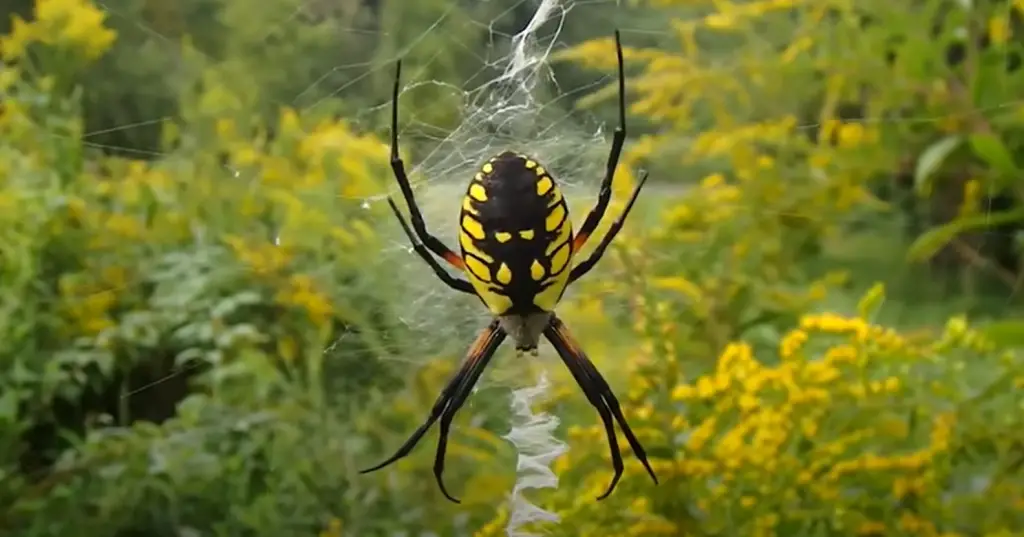
The upside down creature waiting patiently at centre stage can be easily recognized by its white coloration on top and black coloration on the bottom. This helps distinguish it from other types of invertebrates such as flies, who typically aren’t pinkish brown all over like garden spiders.
These spiders are particularly fond of eating flies, mosquitoes and moths! If you have a problem with pests in your garden, you can encourage these beneficial creatures by leaving some areas alone. This will give them a place to build their webs and help keep the area free from pests like caterpillars or aphids. [2]
Garden Spider Web Characteristics
Webs of garden spiders are usually characterised by a spiral wheel-shaped hub in the centre with radial spoke-like arms that spread outwards. They can be found between two objects or points.
They are usually put there for support and stability.
Garden spiders use a web with three layers to catch their prey. The middle layer is sticky, so the spider can catch insects or other small creatures. The outside layer protects the middle layer, so it doesn’t tear easily.
The garden spider web is an intricate and beautiful structure that is essential to the survival of the garden spider. Garden spiders build their webs in order to catch prey. The prey is then wrapped in silk and stored for later consumption. Garden spiders generally eat small insects such as flies, mosquitoes, and moths.
They are not harmful to humans. Despite being dangerous, many people find snakes charming or appealing. If you see one while doing yard work, don’t panic. It will probably go away after a few days, but if there are severe symptoms like difficulty breathing/swallowing, go to the hospital.
They can be dangerous to small animals. Garden spiders sometimes catch and eat small birds, lizards, and frogs. If you have small pets, it is important to keep them away from areas where garden spiders might build their webs.
They may look scary at first, but they will stay in their web corners so you don’t have to worry about them. Just enjoy looking at their eyes and wondering about the tales this creature knows. [2]
Are Garden Spiders Poisonous?
The answer is a bit complicated. Garden spiders are not actually poisonous, but they can bite if they feel threatened. Their bites are not usually harmful to humans, but they can be quite painful. So, while garden spiders are not poisonous, it is still best to avoid getting bitten by one.
If you do get bitten by a garden spider, the first thing you should do is wash the area with soap and water. You may also want to put a cold compress on the area to help reduce the swelling. If the pain persists, you can take over-the-counter pain medication like ibuprofen.
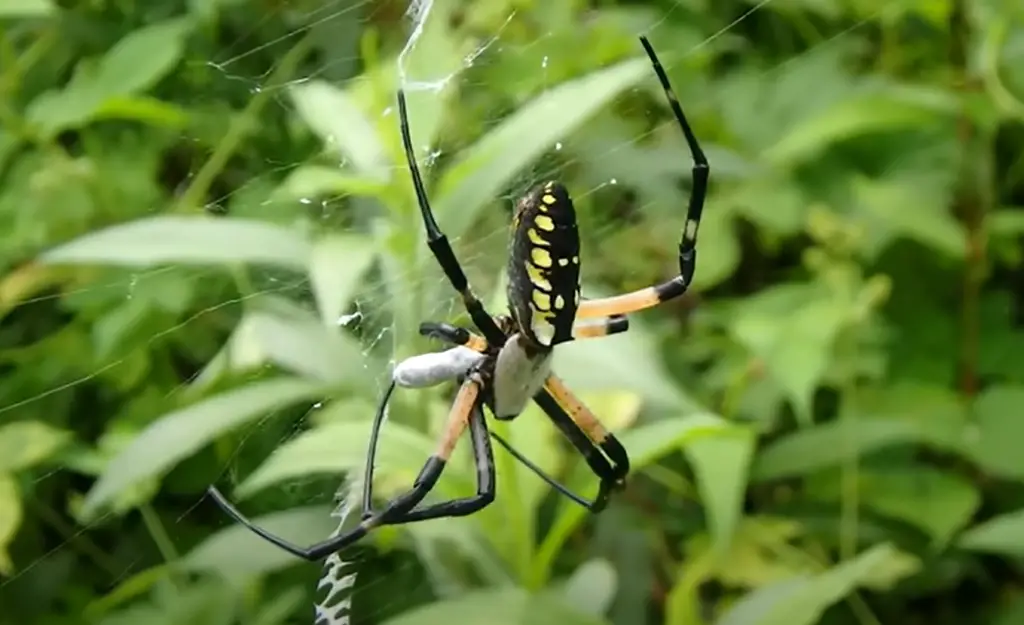
It is also important to keep an eye on the bite site for any signs of infection. If it starts to swell or turn red, you should see a doctor as soon as possible.
While garden spiders are not poisonous, it is still best to be cautious around them. If you see one in your home, it is best to try to catch it and release it outside. And if you are bitten, be sure to wash the area and watch for any signs of infection. [1]
Are Garden Spiders Dangerous?
Most people are afraid of spiders, and for good reason. Spiders can be very dangerous, and some of them are poisonous. But are they really all that dangerous?
In fact, they’re not even capable of biting humans. They can, however, bite other animals. While their bites are not fatal, they can cause some serious swelling and pain. Garden spiders are also known to be aggressive, so it’s best to avoid them if you can.
If you can’t catch it, then you can try to kill it. However, this is not always the best option, as garden spiders are actually beneficial to have around. They help to keep the population of other insects down, which can be helpful in preventing infestations.So, while garden spiders may not be the most pleasant creatures to have around, they are not nearly as dangerous as some people think. If you can, it’s best to just leave them be. [2]
Other Types Of Garden Spiders
In addition to the common garden spider, there are a few other types that you might encounter. These include:
- The orb-weaver spider
- The wolf spider
- The brown recluse spider
Each of these spiders has its own unique set of characteristics, and they can vary significantly in terms of size, colour, and habitat. However, they all share one common trait: they can be dangerous to humans if they bite.
Orb-weaver spiders are a type of garden spider that is commonly found in North America. These spiders are usually black or brown in colour, and they have a round abdomen. Orb-weaver spiders build their webs in open areas, often near houses or gardens.
The wolf spider is another type of garden spider that can be found in many parts of the world. These spiders are usually brown or grey in colour, and they have a long, slender body. Wolf spiders typically live near wooded areas, but they can also be found near gardens.
Brown recluse spiders are a type of garden spider that is found in the southern and midwestern United States. These spiders are brown or grey in colour, and they have a distinct violin-shaped mark on their back.
All of these types of garden spiders can bite humans. If you are bitten, it is important to seek medical help right away. Garden spiders are not usually aggressive, but they will bite if they feel threatened. [2]
Garden Spider Bites and Treatment
The garden spider is not aggressive, and bites are rare. If you’re bitten by one of these creatures it may feel like a bee sting- but don’t worry! The venom isn’t harmful to humans even though they look scary as all get out. If you have a localised itch or burning sensation, you can apply ice packs to the area. You can also take antihistamines to relieve pain and swelling if necessary.
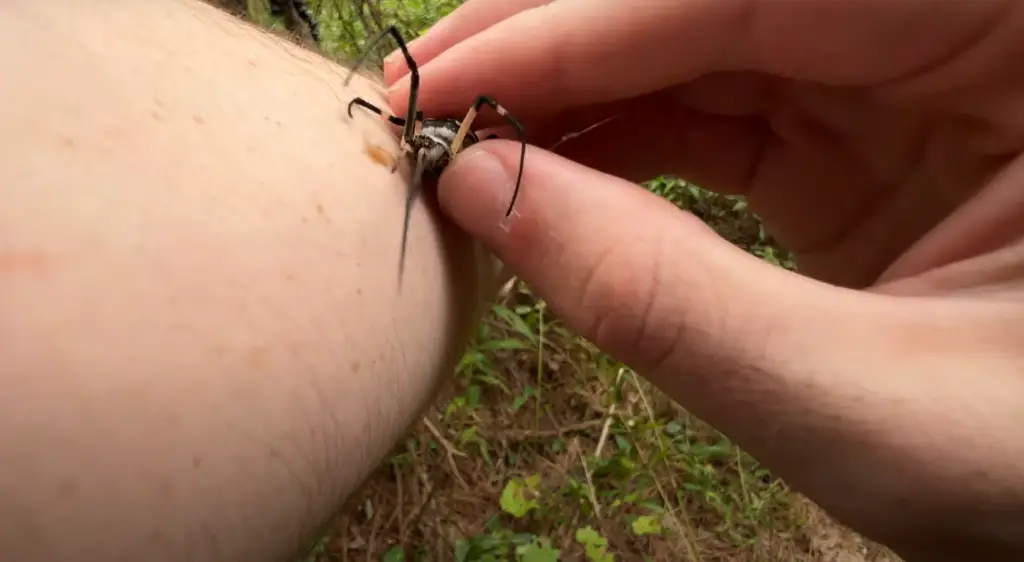
The black widow spider is the most dangerous garden arachnid in North America. If bitten by this species, you may experience muscle cramps and difficulty breathing. If left untreated for a long time, there could be serious complications including paralysis or death.
The brown recluse spider is a dangerous and venomous garden variety who can cause tissue death in its victims. This should be treated by a medical professional as soon as possible because it could lead to more serious complications such as gangrene or necrosis of the infected area.
If this happens, it would make any treatment impossible without proper care for that condition’s specific needs!
Garden spider bites can be serious, so if you think that you have been bitten, it is important to seek medical attention right away. [1]
FAQ
Are Garden Spiders Good to Have Around?
Yes! The gentle webs of the garden spider are a wonderful addition to any yard or flower bed. The creatures help to keep the population of pesky bugs down. They eat the insects that would have eaten your plants.
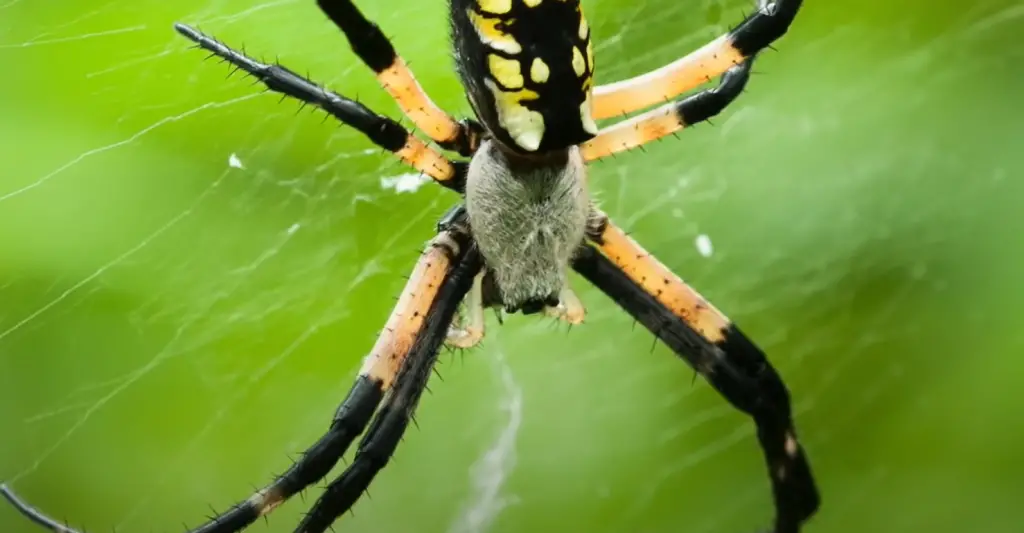
Garden spiders can be fascinating and beneficial creatures in your garden. Some species of spiders are not harmful, but others may cause mild irritation or other reactions to people with sensitive skin. So if you’re worried about being bitten, it is best just to avoid handling them!
Are Texas Garden Spiders Poisonous?
The Texas garden spider is not harmful to humans and their bites can cause pain, redness in the area bitten. An allergic reaction might result if you’re sensitive but otherwise these creatures won’t hurt anyone!
Don’t worry about a spider bite! The vast majority of them will only cause minor discomfort, and it’s actually better to be safe than sorry when you’re in doubt. If you have any problems after our conversation today, like muscle cramps or difficulty breathing, go to a doctor to see if it was caused by the conversation.
While there may be many different species of spiders, not all will have harmless bites. Some spiders can cause serious damage or even death if they are not identified correctly. That is why it is important to know the difference between a spider bite that won’t hurt you and one that might have consequences.
Garden spiders are not poisonous and their bites do little harm. However, if you are worried about being bitten by a spider, try to identify the particular spider before getting too excited or contacting your doctor. In general it is best just to be safe than sorry when dealing with any type of hazardous creature like this!
Do Australian Garden Spiders Bite?
Yes, Australian Garden spiders can bite. If you’re lucky enough to have a houseful of these spiders, don’t worry! They are actually very beneficial. Their bites aren’t considered poisonous and they can even help humans by eating fly eggs or mosquitoes when other options fail them (and we all know how important clean water is).
Australian Garden Spiders are not aggressive and will only bite if they feel threatened. If you leave them alone, the chances of an attack from one in your home or garden is extremely low!
How Do I Identify a Garden Spider?
Garden spiders are interesting creatures, notable for their spiral webs and brown or black colour. The most common type of garden spider is called an Orb Weaver. They have bright colours on their body, often white geometric shapes in concentric circles around their abdomen.
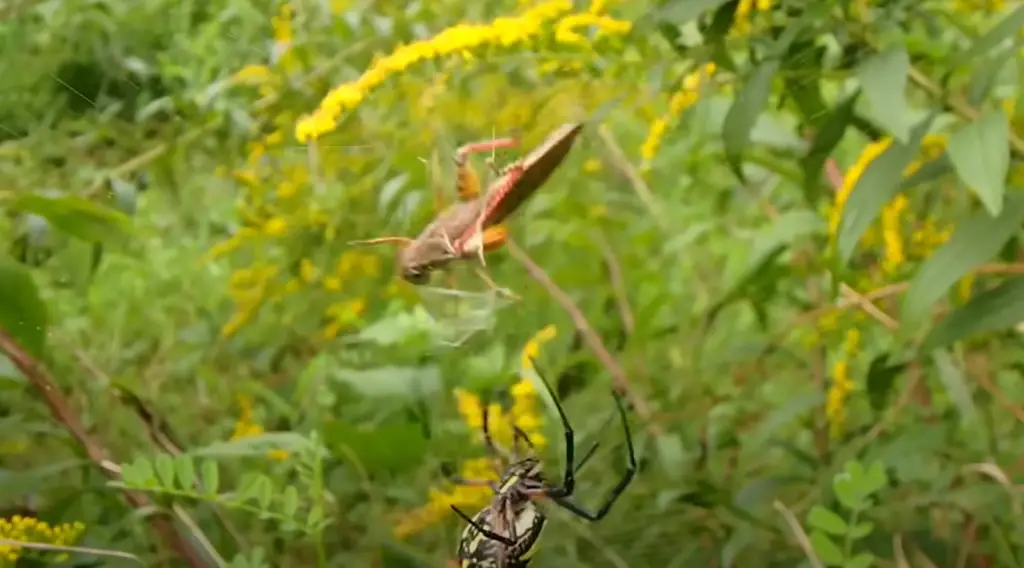
This is called the “inebriated” weaving pattern because it is so colourful. The males can easily distinguish between male and female based upon size. Females usually do not have quite so distinct features, but there are some exceptions.
Garden Spiders are not poisonous to humans but their bites can be painful. If you are bitten by a garden spider, clean the area with soap and water. Apply cold compresses on top of that to reduce swelling. This will help you avoid serious symptoms like difficulty breathing or swallowing. If left untreated, these symptoms could lead to death.
If you have garden spiders in your home, there is no need to be scared. These spiders are not aggressive and will only bite if they feel threatened. To prevent bites, avoid handling garden spiders or disturbing their webs. If you must remove a spider from your home, do so carefully using a cup or container. Never squish a garden spider, as this can cause the spider to release its venom.
If you have garden spiders in your yard, you can take steps to get rid of them. Keep your yard clean and free of clutter, as these provide hiding places for spiders. Trim back overgrown plants and bushes, as these offer shelter for spiders and their prey. Remove webs as soon as you see them, and seal any cracks or openings in your home’s foundation to prevent spiders from entering.
Garden spiders are fascinating creatures that play an important role in our ecosystem. They don’t pose a threat to humans unless we threaten them first.
What is a Garden Spider Bite Like?
A garden spider bite feels a lot like a bee sting. It’s sharp and causes a burning sensation. The pain usually lasts for a few minutes. Garden spider bites are not poisonous, but they can be dangerous if the person is allergic to the venom.
What Should I Do If I Am Bitten by a Garden Spider?
If you are bitten by a garden spider, you should wash the area with soap and water. You can also put a cold compress on the area to reduce swelling. If you have trouble breathing, call 911.
Garden spider bites are not poisonous, but they can be dangerous if the person is allergic to the venom. If you have any concerns, please consult your physician.
Useful Video: Garden Spider BITE! Is it Dangerous?
Conclusion
Garden spiders are not poisonous to humans, but they can bite if threatened. These bites may cause some pain and swelling, but are otherwise harmless. While you don’t have to worry about being bitten by a garden spider, it is always important to be mindful of their presence when spending time outside.
If you see a garden spider web, try to avoid walking through it and disturbing the web. Doing so will help ensure that the spider remains safe and healthy. As you can see, there is no need to be afraid of garden spiders!
So the next time you see one, take a moment to appreciate these amazing creatures!
Have you ever seen a garden spider? What did you think? Let us know in the comments below!
References:
- https://www.trulynolen.com/pest-control/spiders/garden-spiders/bites-and-treatment
- https://a-z-animals.com/blog/are-garden-spiders-poisonous-or-dangerous/





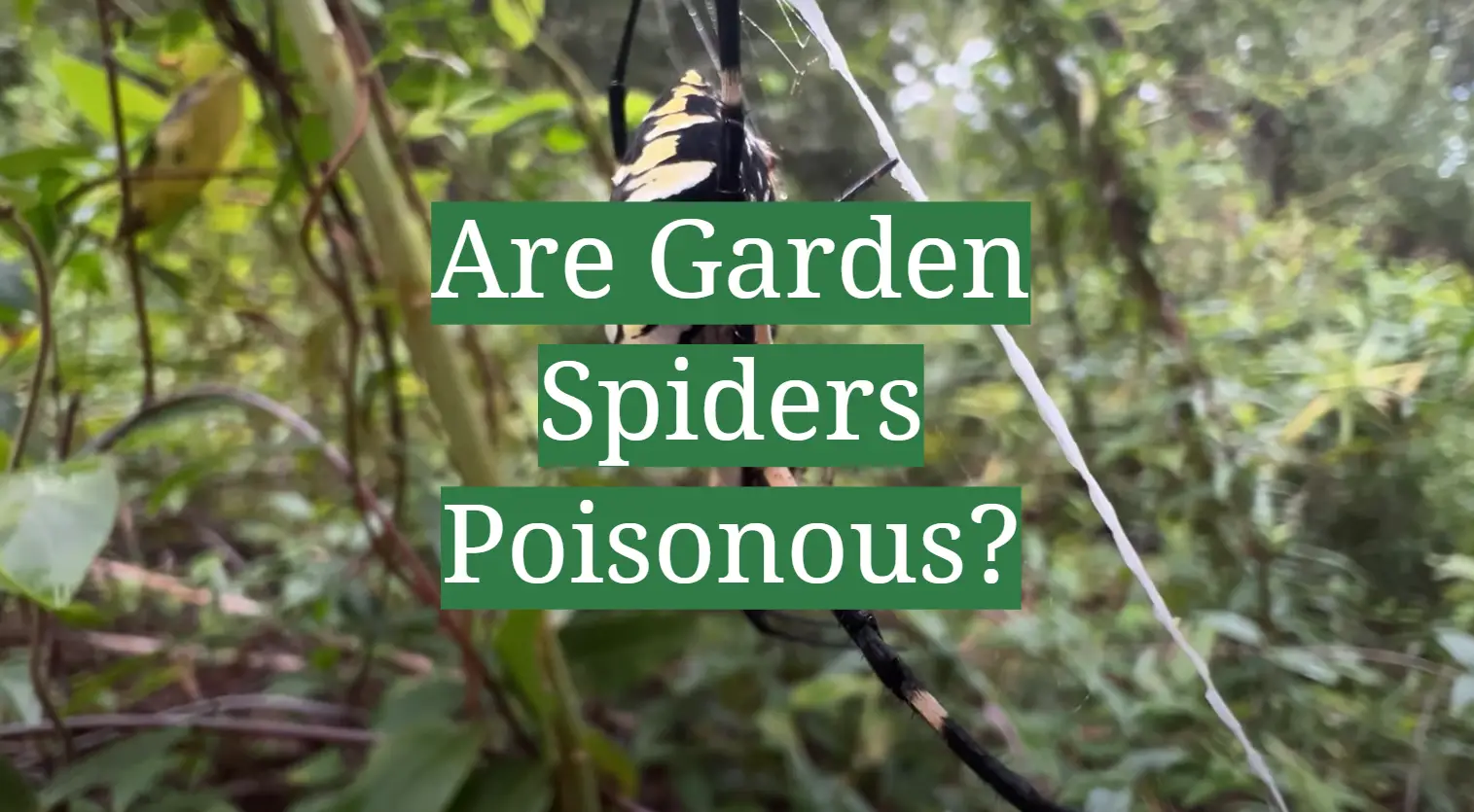
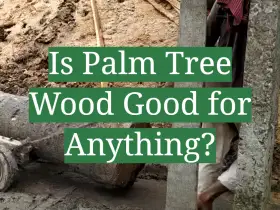
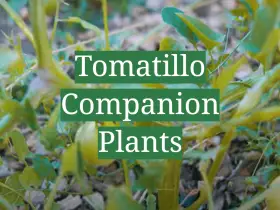
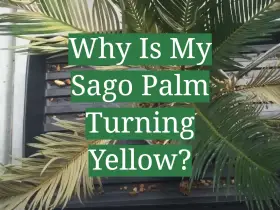
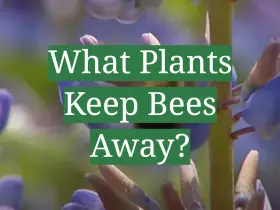
Leave a Reply
View Comments